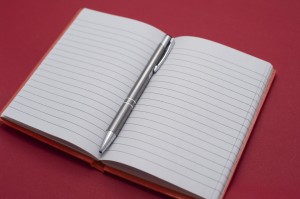Confession #7: The creative gap that exists between what an author imagines in her head and what ends up on the paper inevitably leads to a certain level of failure.
As a writer, I have certain images, ideas, nuances, themes, characters (and any number of other things) in my head when I create a piece of writing. It’s not that I necessarily have a set agenda–this is especially true when drafting and the story and characters are still taking shape–it’s more that I have a clear vision for a piece. I wouldn’t call it a message (because who wants to read a message-heavy piece of writing)…for a lack of a better way to describe it, let’s call it a creative vision.
Inevitably, the words I use to try and achieve my creative vision never quite live up to what I see in my imagination. This has nothing to with my ability as a writer; it’s more a failure of the medium of the written word. Writers have to rely on words to paint a physical and emotional landscape for a reader. We create not only worlds and characters, but ideas and feelings that need to come alive through words because a reader can’t see into a writer’s head.
Even now, trying to explain this creative gap is a frustratingly futile attempt. The words you read here are not exactly what is going on in my head. There is a creative gap between my brain and what you’re reading.
English users even try to steal words from other languages to help overcome the creative gap. A word like “umami”, taken from the Japanese, is roughly a pleasant savory taste (tomatoes are said to possess this quality), but really it’s a taste or sensation that can’t really be expressed in our language.
Then there are words that are so complex and subject to a person’s individual experiences and emotions. Success. Peace. Love. A writer can use these words, but has no control over how a reader will interpret it. Words are simply an inadequate form of communication sometimes.
And this creative gap isn’t unique to writers; it crosses all types of creative media. Films, though more visual, lack in different areas than books. When watching a film, a viewer can’t be in a character’s head and hear his/her direct thoughts (except for the occasional voice over). Artists can paint or draw what they see in their head, but there is no commentary to go with it. A person looking at a painting has to draw his/her own emotional context out of it.
So what’s a writer or creative person to do? Give up because our creative vision will never be fulfilled. Create a failure and despair over it. Nope! We accept that the creative gap exists and use all the tools we possess to convey our creative vision to the best of our ability.
Because something magical happens when our (inadequate) words are read. The creative gap works in reverse. Readers brings their own creative visions to the writer’s words. And they fill the gap, not as the writer would have filled it, but with their own imaginations.
In the end, the creative gap does not create a failure, but a piece of work that is unique to each individual who consumes it. A work that is full of images, ideas, nuances, themes, characters (and any number of things) the creator never could have imagined. And that is certainly a wonderful exchange.




















